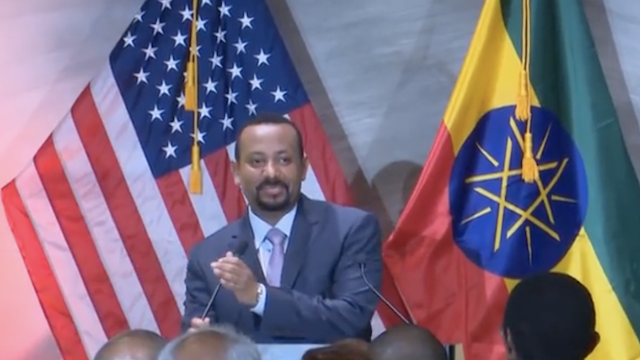Ethiopia is going through an unprecedented democratic transformation and an unusual man is leading it. The man is Ethiopia's new prime minister Lieutenant Colonel Abiy Ahmed Ali who was selected, in April 2018, to lead by the ruling party, Ethiopian People's Revolutionary Democratic Front (EPRDF).
After he was elected, Abiy Ahmed immediately enacted major and deep democratic reforms and opened the political space in Ethiopia, putting an end on decades or dictatorial and repressive regimes. He engaged in successful peace negotiations with the former enemy Eritrea, put an end to an almost four-month-long state of emergency and, most importantly, freed the country's thousands of political prisoners. With such bold moves, he freed political prisoners, sat and welcomed rebel leaders and allowed the Ethiopian people to finally frely to express their opinions, have a free press and a freedom of movement, and to leverage their potentials.
Reach out to the political opposition inside and outside of Ethiopia.
Among the people welcomed by Abiy Ahmed is a former Bucknell University professor, Berhanu Nega. In 2015, Berhanu Nega left his tenured professor position at Bucknell University in Pennsylvania, the United States, his children and his wife, a medical doctor, put his house on a sale, and decided to lead an armed rebellion against one of the most repressive regimes in Africa. His armed group was known as Patriot Ginbot 7, for which he had served as the group’s intellectual leader and principal fund-raiser, collecting money from members of the Ethiopian diaspora in Europe and the United States.
3 years later, Abiy Ahmed, who was, a few months ago, on the side of the oppressive ruling party decided that it was time to have a peaceful and democratic Ethiopia; that included peace negotiations with political opponents, such as Berhanu Nega, the armed rebellion leader.
An unusual career profile.
Abiy Ahmed, 42, a former army intelligence officer, was born on August 15, 1976 into the largest Ethiopian ethnic group, the Oromo. He has been serving as Prime Minister since April 2, 2018. Besides being the leader of the ruling Ethiopian People’s Revolutionary Democratic Front (EPRDF), he also is the head of the Oromo Democratic Party (ODP), one of the four coalition parties of the EPRDF.
He started his military career as an armed rebel, when in 1991, as a teenager and following the death of his oldest brother, he joined the armed struggle against the dictator Mengistu Haile Mariam.
As the Secretary General of ODP, Abiy overcame religious and ethnic divides ravaging Ethiopia to facilitate the formation of an alliance between the two largest ethnic groups, the Oromo and the Amhara, that represent around 70% of the Ethiopian population
Following three years of protests and unrests against dictatorship, repression, and massive human rights abuse, February 15, 2018 the Ethiopian Prime Minister, Hailemariam Desalegn, announced his resignation as Prime Minister and the EPRDF Chairman.
Bold Democratic Commitments.
On April 2, 2018, Abiy Ahmed was confirmed and sworn in by the Ethiopian parliament as Prime Minister of Ethiopia. Immediately he made the following commitments:
- enact political reforms;
- promote the unity of Ethiopia and the unity among the peoples of Ethiopia;
- reach out to the Eritrean government to resolve the ongoing Eritrean–Ethiopian border conflict after the Eritrean–Ethiopian War
- reach out to the political opposition inside and outside of Ethiopia.
His commitments were welcomed both in Ethiopia and around the world, especially by the opposition, including the armed rebellions. Since then, he has been implementing the commitments which has won him internal and worldwide support and approval.
Will his dictator friends learn from him.
However, he has faced critics who point to his closeness to some of the most brutal dictators in Africa, esepcially the Rwandan President General Paul Kagame. The critics wonder whether he will able to convince these African dictators to follow his path and enact political and democratic reforms in their countries, similar to the one Abiy Ahmed is successfuly implementing in Ethiopia.

















